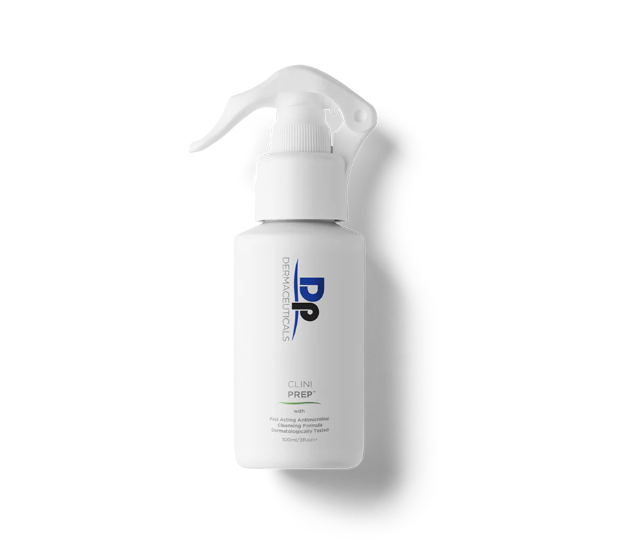Skin disinfectants, also known as antiseptics, are crucial products for cleansing the skin and wounds. They are known to neutralize and prevent the proliferation of pathogenic bacteria and other microorganisms, thus enhancing skin health. Thus, using the best high-quality antiseptic spray is a practical solution to prevent skin infections and maintain proper hygiene.
Stay tuned for more information about antiseptics on this blog!
What are antiseptics?
The term antiseptics refers to chemicals that are applied on the skin in order to minimize germs, on the skin. They are for external use and can be in various forms, such as
- creams,
- ointments,
- gels, and
- liquid solutions
They can have different purposes, potential risks and benefits, costs, and efficacy rates.
Doctors use antiseptic sprays before surgery or any form of medical process. These products are also available in drug stores, supermarkets, or pharmacy stores for minor injuries such as cuts or wounds; hence, they are suitable for skin sanitation.
How are they different from surface disinfectants?
While both antiseptics and disinfectants are said to eliminate bacteria, their uses differ substantially. While antiseptics are rubbed on the skin to reduce bacterial activity, disinfectants are utilized on objects and other surfaces. While they could employ similar substances in their composition, disinfectants have much higher concentrations and cannot be applied to the skin.
When it comes to skin antiseptics necessary for skin disinfection, it is preferable to consider the availability of an antiseptic spray for personal use.
Non-drying antiseptic formulations
Various antiseptic products are currently on the market, including those for home use and healthcare facilities. Most antiseptics include alcohols, isopropyl, and ethyl, which are known to cause dry skin and should therefore be avoided.
If you want to avoid using alcohol when choosing an antiseptic, focus on the fact that the substance is not drying. You have to look for the best antiseptic spray for this purpose. High-performance ingredients in products like the hypochlorous solution are preferred since they do not cause dryness, irritation, or stinging and offer an effective skin disinfection solution.
Uses of Antiseptics Sprays
Alcohol-based sprays are utilized in many ways, but one of the most common uses is to stop skin infections, particularly on all sorts of injuries such as cuts, skin abrasions, and burns. They are also useful for dry hand-washing and are frequently utilized by surgeons during operations.
Furthermore, we cannot disregard the importance of the antiseptic sprays that help to wash the skin prior to carrying out any medical procedures hence reducing the possibility of contracting infections.
Today, the best antiseptic sprays are used before any skin care treatment, clinical procedure, or surgery.
- These non-drying formulations are ideal for pre-treatment: following cleaning and application of the numbing gel, wet the area of the skin where the procedure will be performed with the antiseptic solution and allow it to stay for 20 seconds; if any excess solution is to be wiped off, it should be done gently.
- After washing, the spray can be used throughout the procedure as well as at the end, immediately before the application of any corrective procedures.
Precautions-
- Always observe all the guidelines on the product bottle when applying antiseptics at home.
- Using antiseptics more frequently can lead to skin rash or even chemical burns.
- Something important to consider is that the choice of antiseptic agents has to be free from alcohol or parabens, as they are gentle on the skin and do not cause side effects.
- Ideally, the antiseptic spray that should be utilized should have undergone dermatological tests and should not cause skin dryness or skin rash.
- The first step is to always read the labels of the products before buying to ensure that they do not contain any hazardous substances.
- Do not apply antiseptics on the eyes, injury/ wound larger than 1.5cm in diameter, and areas that are burned or have a foreign object.
- Do not use surface disinfectants for skin burns or wounds; they are strictly meant for surfaces.
- All antiseptic formulations should be used after consulting a healthcare provider for their correct usage.
Triclosan- Ensure the antiseptic spray doesn’t have it
The FDA has recently removed 24 chemical compounds from the list of products that can be sold in retail stores to be used to fight bacteria and viruses on the skin because there is no proof they are safe and because they stay in the human body for extended periods.
Among the banned ingredients, triclosan is one, but most of them are not active in today’s antiseptic products, so the ban has little effect. Manufacturers have improved formulations to remove substances such as triclosan and others from products that are in circulation since they are effective and safe to use.
Is it safe to use antiseptic spray?
But even though the substances used are good at fighting off infections, some of the more potent formulations of antiseptics can prove to be as caustic as strong acids or alkalis. They can produce chemical burns or severe irritation if applied directly without dilution.
Concentrated solutions of antiseptics can even cause irritation when used as diluted solutions, but they should not be left on the skin for a long time. At home, do not use the antiseptics for over 7 days, as this may cause more harm to your skin.
It is not suitable for severe conditions like eye injuries, bites, deep or large holes, severe burns, or foreign object entries. These conditions need to be treated with medicine. In case there is a wound which has been treated by antiseptic and has not healed or appears to be infected then one needs to consult a doctor. To avoid such a situation, always ensure that you get the best antiseptic spray from a company that has its products certified by the FDA and tested by dermatologists.





Comments